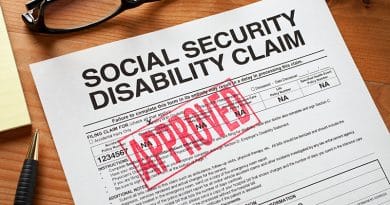Living in a Time of Threat
If you would have been asked a year ago if you were concerned about a global pandemic grinding life as you know it to a halt, you probably would have raised your eyebrows and laughed. There is no doubt that the world we are in is not the world we knew then.
The ongoing threat of COVID-19 on health, employment, economy and social connection rolls on with no real end in sight. The overall sense of uncertainty is pervasive across the entire planet and especially in the U.S. where the virus continues to seep into even the small towns of all of our states. This is no longer a crisis of cities only. On top of this is the division in attitudes around this pandemic and a lack of uniform approach to it. We need to continue to stay buckled in here because apparently nobody is getting off this ride any time soon.
With trauma, it used to mean that we could work through the past to feel safer, to live a “life after trauma.” But the world we live in is traumatic. According to trauma expert Janina Fisher, PhD, we are “living in a war zone.” A COVID war zone. Whether you are in a chronic state of heightened anxiety because you or a loved one has a COVID vulnerability, have lost your job because of the impact of the virus on the economy or still feel little impact because you don’t personally know anyone who has suffered, everyone is experiencing uncertainty of the future.
-> What is happening with your children and school in the Fall?
-> Will your “front line” job expose you to COVID?
-> When will you have employment again?
-> When will you feel comfortable traveling to another state to visit your elderly parents?
-> Will someone you know get severely ill or pass away?

- Be aware that your distress is a survival response.
- Focus on the present. Even a few minutes a day of attention on your breath can help. Notice things around you on a walk you don’t normally see. Tune into your body.
- Avoid obsessive thinking and “What if’s.” Minimize news watching to diminish your fear response.
- Befriend the anxiety or hopelessness as attempts by the body to help you through the crisis.
- Increase your curiosity to train your mind to be interested rather than reactive. Notice the fear responses and physical sensations. How is your body telling you that you’re afraid? Curiosity is like mindfulness, it can change your relationship to what you feel.
- Increase your compassion as this mind/body experience can elicit feelings of warmth, relaxation and support.
If you find yourself preoccupied in a way that’s not serving you well whether in fear or hopelessness, know that you are not alone. Be proactive in alleviating your distress. Actively practice the suggestions above. Reach out to family or friends. Get additional support from a therapist to help you process, learn tools to get through this time the best you can. Many are now easily available online, find one in your state to help.
Not only is COVID a worldwide crisis, for many it’s also become a mental health crisis. If you feel stigma around this, there are many resources to help you back away from this kind of thinking.
It’s ok to not be ok.
—
Here are some resources:
Inside and Outside Threat: Mind-Body Approaches to Fear and Danger by Janina Fisher, PhD
California Online Therapy and Counseling





